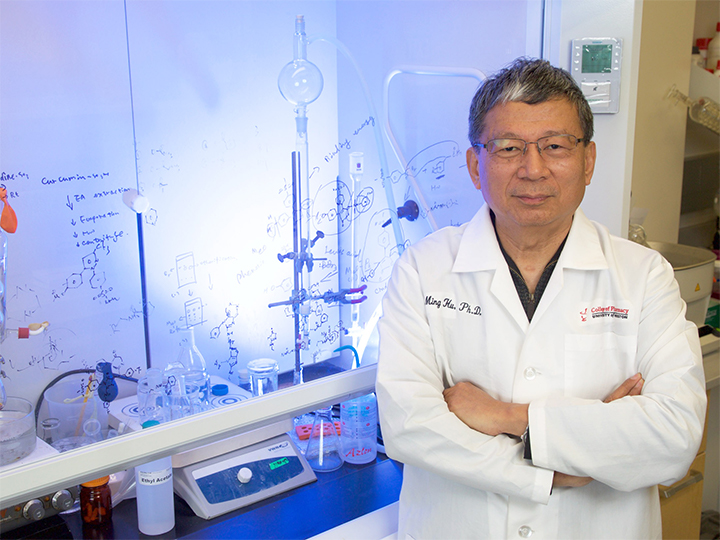

University of Houston professor of pharmaceutics Ming Hu is developing and testing an ancient Chinese herbal medicine formula, first described in 280 A.D., to improve cancer therapy. Hu believes Xiao-Chai-Hu Tang (XCHT) can protect people on the chemotherapy drug Irinotecan from a deadly side effect: Severe-delayed-onset diarrhea (SDOD.)
“The clinical use of Irinotecan is limited by the severe diarrhea that results in poor quality of life, hospitalization and even death,” said Hu, who is also the Diana S-L. Chow Endowed Professor of Drug Discovery and Development at UH.
“Our goal with XCHT is to allow more people to benefit from the treatment by Irinotecan, which is often the drug of last resort for late stage or metastatic cancer patients.”
Hu and colleagues Romi Ghose, associate professor of pharmaceutics at UH and Song Gao of Texas Southern University, have been awarded $996,162 from the National Cancer Institute to investigate the effectiveness of the ancient formula. They will also work with Lijun Zhu of Guangzhou University of Chinese Medicine in China to determine the agent’s effectiveness in a clinical trial.
To be sure, Irinotecan is a powerful weapon against cancer, but many of those who take it develop SDOD, likely caused by SN-38, the active metabolite of the drug. In the intestine, SN-38 can damage intestinal cells and affect their renewal.
“Intestinal cells have UGT enzymes that detoxify SN-38, but we found that SN-38 can also inactivate and reduce UGT enzymes in the intestine. This creates a vicious cycle. Approximately 1-in-5 patients will fall into this vicious cycle, leading to discontinuation of therapy, decreased efficacy or even death,” said Hu. He has shown that XCHT protects the UGT enzymes and reduces severe diarrhea, and with the new grant he will develop it further, for testing and approvals.
XCHT is actively used in China, Japan and Korea for liver protection. This is the first instance where it has been shown to protect the intestine from SN-38, making the UGT enzymes more resistant to the impact of SN-38.
“Our long-term goal is to develop experimental therapeutics and/or nutritional supplemental approaches to reduce SDOD, so patients can sustain their chemotherapy,” said Hu.